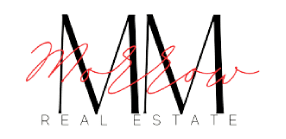When shifting to a new neighborhood with your family, knowing about the area’s schooling is essential. So, suppose you are thinking of moving and buying a home in Nova Scotia, consider these details.
Though education systems in Canada focus on holistic education more than pure grade, interestingly, it still ranks well above US and UK systems. The main concern is the quality of education and a students’ performance.
In Nova Scotia, children start attending school at the age of four up to 18 years. The schooling comprises three levels, primary or elementary, junior high, and senior high, with grades starting from primary to grade 12 with some schools offering advanced IB (International Baccalaureate®).
(You may want to check Nova Scotia, Wolfville properties for sale here.)
While not all schools in Nova Scotia offer pre-primary, children who turn four years of age by December of every school year qualify to start accessing free and universal pre-primary school.
The pre-primary education lasts for one year, then children start grade primary, then grades one to six, marking the end of elementary level. After grade six, youths start attending junior high schools for their grade 7 to 9 and finally to senior high schools for grades 10 through to 12.
The classes in Nova Scotia last for five hours and are conducted in English and may have French. However, most schools primarily use English, with French starting at grade 4 to 9 and optional in senior high school.
Private Schools and Homeschooling
While many students attend public schools, there are around 20 independent schools, most of them being in Halifax. (Check Halifax properties for sale here) The government does not fund private schools, and usually, fees vary from school to school.
Also, parents are legally allowed to give education programs to their kids at home instead of taking them to public schools. However, they must follow the government-provided guideline.
French Language Learning System
French lessons are offered by Conseil Scolaire Acadien provincial francophone Schools (CSAP). And any school-going child can register for the classes in the HRCE if they meet some standards.
Attending CSAP requires a child to have at least one parent who is a Canadian alongside at least one of the following:
- French is the parents’ first language, and they still understand it.
- Parents got their education through a French first language program.
- The siblings have a French education as their first language.
You can still qualify if your grandparent meets these criteria, in case your parents do not.
Before and After School Activities
These programs are available to families and kids enrolled in pre-primary school and the public education program. They are primarily free and offered by approved child care, municipality, and non-profit organizations within the province.
Registration
School boards in Nova Scotia prefer registering students in February for both English and French immersion programs. CSAP parents can enroll any time of the school year. You can get your child registered in the school they will be attending or at the regional school board office.
Remember to give as much documentation as possible about your child’s history before moving to the province. This will ensure children are placed at a learning level that fits them.
In Conclusion
Canadian education system ranks above the UK and the US. Like any other province, Nova Scotia’s education system is comprised of three levels, elementary, junior high school, and senior high school. The grades start from primary to grade 12. The classes are conducted in English and French, with the former being the primary language. If you are planning to buy a house in Nova Scotia or around, you should call us now at – 902.304.1762

